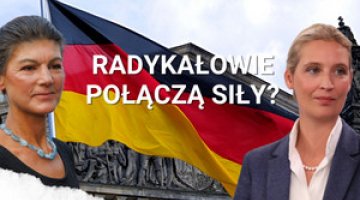The state election in Saarland – a clear victory of the CDU
The CDU secured a clear victory with a 40.7% share of the vote in the state election held on 26th March in Saarland. The result is 5.5 percentage points higher than in 2012. The SPD came second with a 29.6% share of the vote (down 1 percentage point). The Left Party, with a 12.0% share of the vote, and the AfD (6.2%) also entered the state parliament. The Green Party and the FDP for the first time will not be represented in the state parliament. Turnout stood at 69.7% (compared to 61.6% in 2012). The election result indicates that the CDU-SPD coalition government will continue, with Annegret Kramp-Karrenbauer (CDU) leading.
Commentary
- The state election in Saarland was the first test for the SDP following the change in the party’s leadership. Although its result is not representative for the whole country (Saarland has a population of under one million), it has proved there is large support for the CDU at the federal level. Angela Merkel will use this victory to justify her strategy towards the SPD, consisting in ignoring Martin Schulz and postponing the campaign. Even though in Saarland the ‘Schulz effect’ has not worked, it will be verified in a much more important way in the state election in North Rhine-Westphalia (Germany’s most populous state), scheduled for 14th May. The state’s minister president is a popular SPD politician, Hannelore Kraft. The CDU in North Rhine-Westphalia is currently 7 percentage points down in opinion polls and the party is seeking help from Chancellor Merkel. Towards the end of January this year both parties were doing equally well in opinion polls.
- The CDU’s victory in Saarland should above all be attributed to Minister President Annegret Kramp-Karrenbauer since three quarters of voters appreciate her work. In recent years she has expressed her discontent with the government’s migration policy and a few days ahead of the election she banned Turkish politicians from appearing in public, although no public meetings had been planned in North Rhine-Westphalia. The high turnout and mobilisation of CDU voters shows that the voters fear a potential coalition between the SPD and the Left Party. This may prove an important indication for the Angela Merkel election team. 30% of the respondents are in favour of a continuation of the Grand Coalition at the federal level. Only 19% of those surveyed would support the establishment of an SPD-Left Party-Green Party government.
- The result of the state election in Saarland has pointed to the risk of marginalisation for smaller parties. The CDU in Saarland have prevented the anti-immigration and anti-Islamic AfD from obtaining a better result in the election. The CDU has appropriated the subjects raised by the AfD. However, it is the Green Party which has larger problems. Their failure in the election in Saarland may be attributed to the same factors which have led to low support for them across the country. Above all the party lacks its unique ‘green’ election topics, it has attempted to incorporate the ideas of other parties (e.g. the demands of the SPD in welfare matters) and focuses on niche issues. Apart from this, potential government coalitions in which the Greens could be partners do not have social backing and rather mobilise the party’s opponents to participate in the election.





